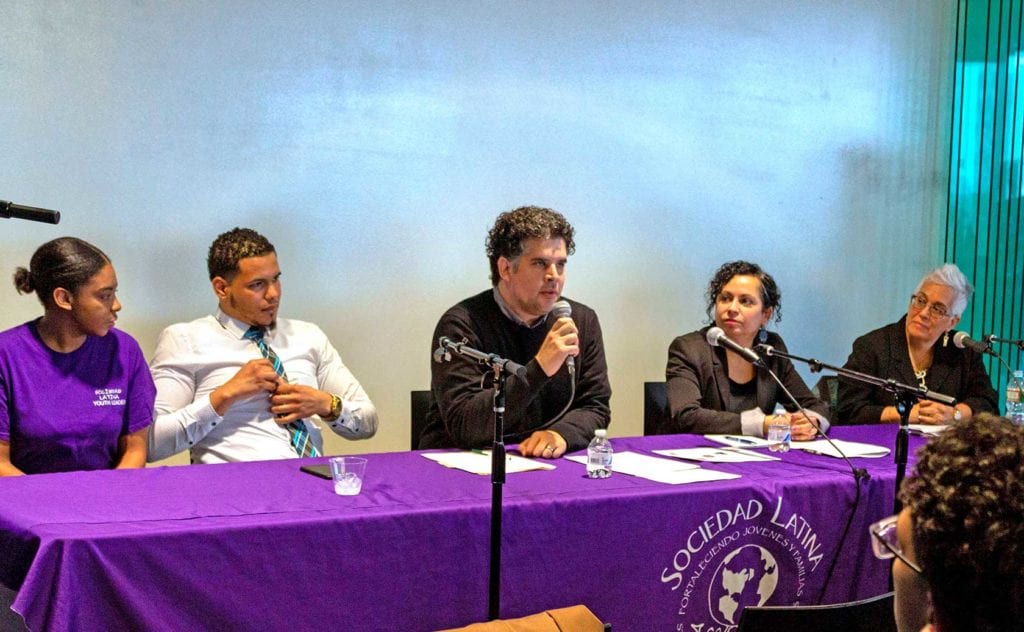
Even though the population of Latino people in Boston and around the country is rising, Latinos, especially Latino youth, are still at a disadvantage in American society. The Boston-based nonprofit Sociedad Latina has been working for 50 years to even out that inequality.
At an event Monday night celebrating the organization’s 50th anniversary, Executive Director Alexandra Oliver-Dávila explained that helping Latino youth be proud of their identity lets them pave the way for their success.
“At Sociedad Latina, we believe la cultura cura — culture does heal,” Oliver-Dávila said. “We believe promoting positive cultural identity and bilingualism can help to counter detrimental stereotypes and have tremendous and long-lasting healing effects.”
Sociedad Latina has been working with Latino families in Boston since 1968 to help end the cycle of poverty through their education, civic engagement, workforce development and arts programs for youth in middle school, high school and college.
According to research by the Rennie Center for Education Research and Policy, 42 percent of Boston Public Schools students are Latino, making them the largest demographic group in the district. However, only 11 percent of BPS teachers and guidance counselors are Latino, and Latino students often do not have the contacts in higher education or the professional world that students of other racial/ethnic groups do, making it more difficult to access educational and workforce opportunities after high school.
“We need more teachers that represent us … for each child to feel comfortable to speak their language no matter where they go,” said Ruth Ayuso, a Sociedad Latina alumna and senior at Fenway High School, who spoke on a panel at Monday’s event.
Lorna Rivera, director of the Mauricio Gastón Institute for Latino Community Development and Public Policy and a member of the Boston School Committee, explained that according to research, having a teacher that shares a student’s ethnic background will contribute to that student’s academic success. In addition, giving Latino students the opportunity to learn about ethnic studies contributes to their success in college.
Marcos Lucio Popovich, program officer and equity leadership team member at the Nellie Mae Education Foundation, said that learning about his ancestors’ history helped him feel more pride in his Latino heritage.
“We need to understand our contributions to this country, because they’re minimized in our books and on TV,” Popovich said.
Rivera explained that because increasingly, many Latino youth are born and raised in the United States, they can feel disconnected from their families’ history, making it even more important that they have access to this history.
“I struggled with those identity conflicts: Who am I? How am I different from my cousins in Puerto Rico?” Rivera, who grew up in Chicago, said. “Many of us in the room share those sorts of challenges.”
Ayuso and Wilmer Quiñones Melo, another Sociedad Latina alum on the panel who is now the organization’s STEAM Team program coordinator, both said that the program allowed them to connect with other Latino youth and Latino culture, and see that there were opportunities for their futures. However, the panelists all agreed that there is a long way to go.
Dania Vázquez, founding headmaster of the Margarita Muñiz Academy, the only bilingual high school in Boston, said that the potential to create a supportive environment for Latino youth in BPS is there, it just needs to be accessed.
“I think BPS in our city is very, very rich, and I don’t mean money-wise,” Vázquez said. “We are very rich in diversity and all the beauty that we all bring. So how do we network this and make it work for the young people that we serve every day?”






